Passionate public servant brings public service insights to IT solutions
Gerard Hudspeth has a very unusual volunteer gig: He’s the mayor of Denton, TX, a city of 140,000 on the far north side of the Dallas/Fort Worth metroplex, home to both the University of North Texas and Texas Women’s University. After serving on Denton’s City Council and as Mayor Pro Tem, Gerard was elected Mayor of the city in 2020.
Gerard founded Hudspeth Information Management, a legal document and data services management company, in 2011. His wide-ranging professional background also includes serving as general manager of pNeo, a business accelerator that nurtures unique brands through innovation. Now Gerard has joined Freeit, taking on the role of State and Local Government Business Leader. We sat down with him recently to find out a few things . . .
What initially attracted you to Freeit?
What attracted me to Freeit are the solutions and services they offer specifically to municipalities and government agencies – and the success they’ve seen in cities. If one city is happy with a service offering, there are likely many others that are in a similar situation. Freeit has done the proof of concepting.
As State and Local Government Business Leader, what will your primary functions be?
My role will be focusing on state and local government and developing business around that as well as leveraging relationships on the corporate side. It’s going to be business development, sales, account management, networking, marketing – a little bit of all those things.
Sounds like Freeit is going to let you do whatever you want!
Maybe! The interesting part about the role for me is that it allows me to bring my experience from the policy-maker and budgeting side of things to the technical side. I don’t know everything that our technical department goes through at the City of Denton, but you have this IT department that is tasked with keeping everyone’s machines, emails, etc. safe. I don’t think their profile is as high as it should be.
It’s going to be an opportunity to hear from the people who are doing the work, then translating and communicating that to the decision-makers. It’s an opportunity to really raise the profile for those teams in state and local government spaces, where there’s always this extra pressure to get it right.
What do you mean by “extra pressure”?
Well, if a company falls victim to ransomware or loses an application or two, they can go to the bank or their funders and get more money. In state and local government, you can’t just go out and get more tax money. It’s a once a year thing, and it has to work. You can’t shut people’s power off while you negotiate with hackers.
It sounds like state and local governments have some unique IT challenges.
Exactly. And you’re also dealing with third parties. Cities and governments are different in that you can’t just go hire the best provider, you have to find the “lowest responsible bidder,” which presents its own challenges. And then there’s reporting and restrictions. And then there’s the public-facing side of things. Nobody wants to be the council member or the mayor during an outage. So there’s this public pressure that you have to navigate as well. I bring an understanding of all those things, and how you can leverage best practices to balance those needs and get the best result.
Working at a business accelerator had to be interesting. What did you learn there about helping companies be successful?
My time at the accelerator helped me in a few different ways. One of the things was understanding the importance of a plan and working the plan. You can’t make it up as you go – you’ve got to work your metrics, work your data. It helped me understand the need to be disciplined about your approach. But it also taught me to be able to respond quickly. It’s a dynamic environment that these IT professionals are in, so you have to be able to pivot quickly and have a plan B and C. When unexpected things happen, you can’t just stay the course.
It happens in my volunteer job as mayor, too. I get thrown a lot of curves that aren’t predictable. So you have to educate yourself, have a base of knowledge to work from, have a general plan that’s about 75% baked, and then see what the day brings you.
What’s your plan for helping customers succeed with Freeit?
I want to make sure we have all the right people plugged in, and that we’re hitting all the right notes. If someone purchases something from Freeit, I want them to get the white-glove treatment. We’re essentially going to give them a Google Maps to implementation so they know what’s coming next: In 1,000 yards, here’s what’s going to happen. In 500 feet, here’s what’s going to happen. So they know what to expect all along the way.
When I reflect personally on what I respond to, it’s when someone takes away those extra and unnecessary steps. That kind of planning instills confidence, and it shows that we’ve thought about the project well and that we’re prepared. I’ve been there before, I understand, and I know the kinds of things that make people nervous. So we need to demonstrate that we’ve thought about those things carefully, and we’ve set our customers up for success. They took a leap of faith to give you the budget, and we’re going to reward that faith and that trust, making sure contingencies are in place and that we’re executing on best practices.
Besides serving as mayor, do you have any other passion projects you’re working on?
I’m passionate about spending time with my kids – I have two girls. I want to get them plugged into what I do and get them active. My dad served on the school board when I was in high school, and I caught the bug then. So if you look at any of the meetings I’m in or any of the social media, you’ll see I’m wearing these custom-made ties that my kids made for me. I have 15 of them. It’s a way of taking them with me. I also spend a lot of time at elementary schools and that sort of thing, volunteering with the kids.
What do you do when the going gets rough?
For me, all’s well that ends well. On those days where there are bumps in the road, or challenges, or frustrating things, you have to just kind of pan out and look at the bigger picture. If an implementation is not going as planned, let’s not all panic. I’m going to be that calm voice that says, “OK, now that we’re here, here’s how we move forward and achieve the goal.”
I take a rock-climber’s approach to life. The bumps are what you climb on. If I’m on the side of a mountain and it’s smooth and flat, that’s a problem. I need that next rough spot to get me up the mountain. We should anticipate these bumps and use those to elevate ourselves. That’s the philosophy that helps me stay calm and truly take a daily approach to things, sometimes minute by minute, even in my council position.
Seriously, Gerard, are you always this chill?
Ha! It’s not as bad as Twitter would have us believe. I am naturally a worrier, and there’s always going to be something going on – it’s relentless. That can be exhausting if you’re not prepared for it. So I want our customers to know that I understand what they’re going through, and that I’m going to try to mitigate that stress.
What are you looking forward to working on most?
I’m looking forward to bringing another level of service to an industry that’s already service-focused – just really step that up a notch. I spend a lot of time refining plans, going over details in my mind, to see if there’s a square inch somewhere we can save, or an unnecessary step – kind of an engineer’s approach to things. What’s the maximum possibility to the benefit of everyone? That’s always my question. Let’s start work from there.
Thanks, Gerard! We’re looking forward to working with you at Freeit!





